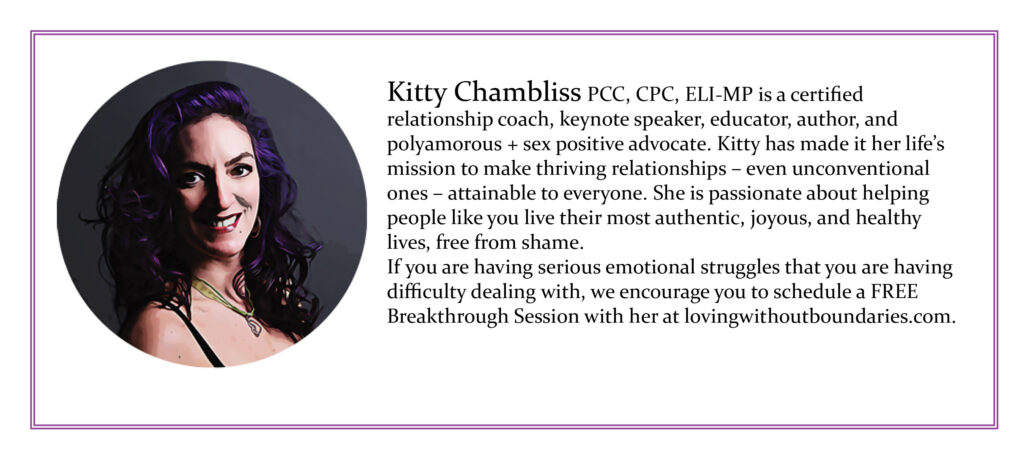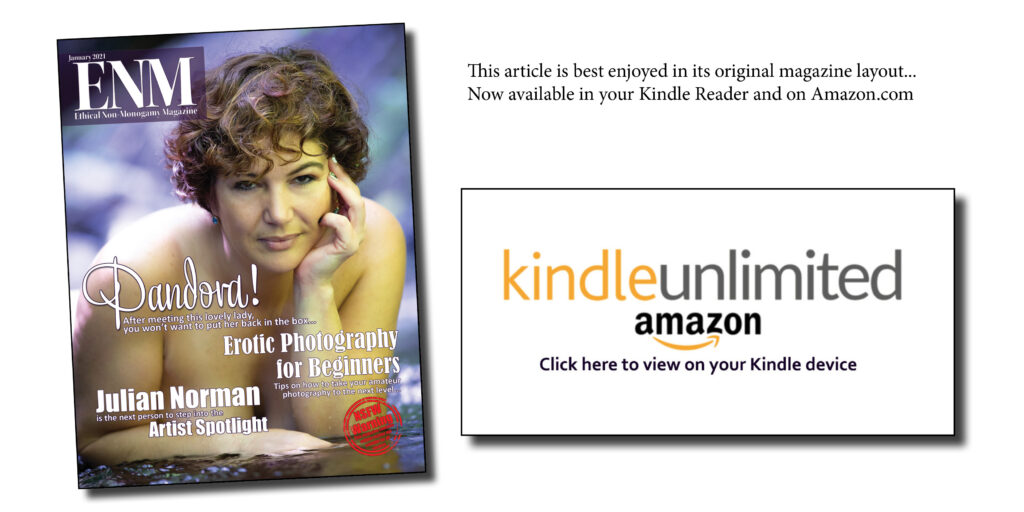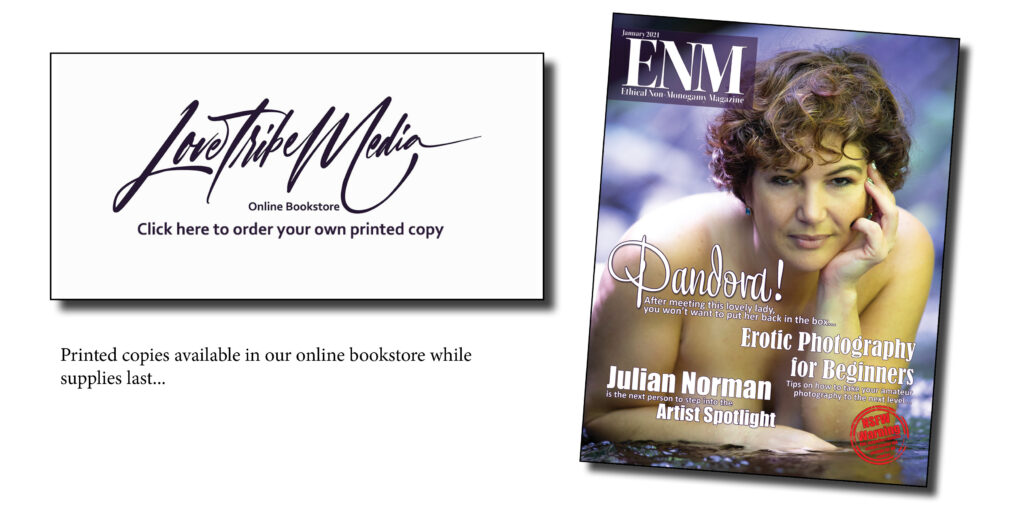
Dear Kitty,
I am dealing with a situation right now and wondering if I can get some help. I just got done having a disagreement with my wife. She let me know a few months ago that she wanted to be in an open/polyamorous relationship. At first, like every couple, we had some issues that we worked out. She had a guy that she was talking to, and I felt kind of down about it. But I went seeking counsel in an online open relationship community (Loving Without Boundaries) and got good advice. But fast forward to today… I have found someone that I have a connection with and automatically, the same feelings that I had she is now having. I tried to talk to her now that I am into the polyamorous lifestyle that I gotten used to. She wanted to change her mind and decided that that lifestyle is not for her now. I totally get that and understand her. I know it was wrong of me when I flipped out on her because she said she changed her mind. But I got sooo into polyamory – I even read the books and I want to continue being polyamorous. But at the same time, I don’t want to lose her. I am in a little jam that I don’t know what to do or say. She’s inside crying as I write this, and now I feel bad because I told her that I wanted to continue being polyamorous. Any advice I will gladly appreciate it. Thank you.
Signed, TheOtherFoot
Dear OtherFoot:
From one fellow human being to another, my heart goes out to both of you at this challenging time which you are experiencing. From what you describe, it sounds like you both are dealing with sadness, confusion, and possibly guilt and shame as well. I know it can be so difficult to see through the clouds in moments like these and make sense of it. I’m sorry to say that I see situations like this quite often in my work helping couples as they open up their relationship. Know that you are not alone in what you are experiencing, and that this is a normal turn of events – though highly uncomfortable.
First, take a moment. Breathe. Know that you will get through this.
My second bit of advice is this: Don’t go this alone. Growing up in the world today, we often don’t learn tools and skills or have good role models to be in healthy monogamous relationships, let alone polyamorous or open ones. The most common misstep I see is folks diving into the deep end of the pool without a lifeguard (mentor, coach, counselor) looking out for them, and without a life preserver (tools) to help them get to the other side of the pool. Opening up a relationship and exploring polyamory can be a complex undertaking, and is not to be taken lightly. It’s not like deciding which house to buy in the same neighborhood, you are choosing to move to a different country where you probably need a guide! Not going to “polyamory school” is the most skipped step I see when folks open up a relationship. Yet thankfully, this is totally fixable if there has not been too much irreversible damage done or resentment built up.
To help you see through some of the confusion you may be experiencing, when a couple decides, as you both did to open up your relationship, there is an element of opening up Pandora’s box. This is a decision to essentially transform your original relationship into something else, the way a caterpillar turns into a butterfly. Many don’t realize what they are actually undertaking when they make this decision together. As fellow colleague, Jessica Fern shares in her workshop “Couples Transitioning from Monogamy to Polyamory and Staying Together”, often the polyamory is not the cause of relationship challenges or breakups. It’s the paradigm shift and even shock which has taken place. Couples can experience difficulty from being in an unfamiliar paradigm (polyamory) that has a different set of values, expectations, attitudes, and ways of being. Often jealousy, fighting, and hurt feelings are symptoms of this shift (shock). There can be resistance to this shift that has inevitably happened in your relationship, even though you had both agreed to explore opening up. You can think of this as trying to put the genie back in the bottle.
From what you are describing, it sounds like once the genie was let out of the bottle, this shift exposed differences between you and your wife. Once you experienced polyamory, you may now feel an orientation to it, thinking now, “This is who I am, this is the fullest expression of me.” Whereas your wife may have been more in the camp of a lifestyle choice (not orientation), thinking if it doesn’t feel right, she will simply (and hopefully with you) bounce back to monogamy. I empathize greatly with the pain you are describing. It is as though you both decided to cross a river, and now you are on opposite sides of the divide, with your wife going back to the original shore.
Discomfort and change are a part of our growth journey in life and are inevitable. Sometimes our suffering is in not accepting this truth. I love this quote: “One must never lose time in vainly regretting the past nor complaining against the changes which cause us discomfort, for change is the very essence of life.” — Anatole France.
Knowing that you don’t want to lose your wife, I highly recommend seeking a professional who you both can trust to help you navigate through these waters. Often the relationship skills we have from monogamy do not always convert to other relationship structures. It may be beneficial and important to slow down, take a pause and a breath, then work on and heal your relationship. During that time, you both can also get more clarity on who you really are today (versus the past), what would make you each happy, while you also work on your communication, as well as inner security and healthy attachment styles. Monogamy can often be a stand-in for someone who has an insecure attachment style. When opening up, insecure attachment can get triggered by one partner getting scared and saying “Let’s be monogamous again.” A word of caution here though: If one partner goes back to monogamy half-heartedly at the others request (or demand), it can breed resentment. And growing resentment can damage relationships.
The good news is that people can learn skills, tools, and strategies to move towards earned secure attachment, better communication skills, and sustainable emotional resiliency (emotional intelligence). This is best undertaken not just by reading books, but having a mentor and guide holding your hand through this process. The bad news is that an incompatibility between partners might be uncovered, or an unwillingness by one or both to do this work. It takes an extraordinary amount of courage and tenacity to look within, and also work as a team to get to the other side of this. Yet all parties will be better for it, stronger, more resilient, and with a set of skills to last a lifetime.
My advice: Don’t go this alone. Seek out a non-judgmental, polyamorous-friendly professional to guide you to smoother waters together.
With love and gratitude,
Coach Kitty
* Question provided through the Loving Without Boundaries private Facebook community. Want to join our community for support? Go to facebook.com/lovingwithoutboundaries.



Comments are closed